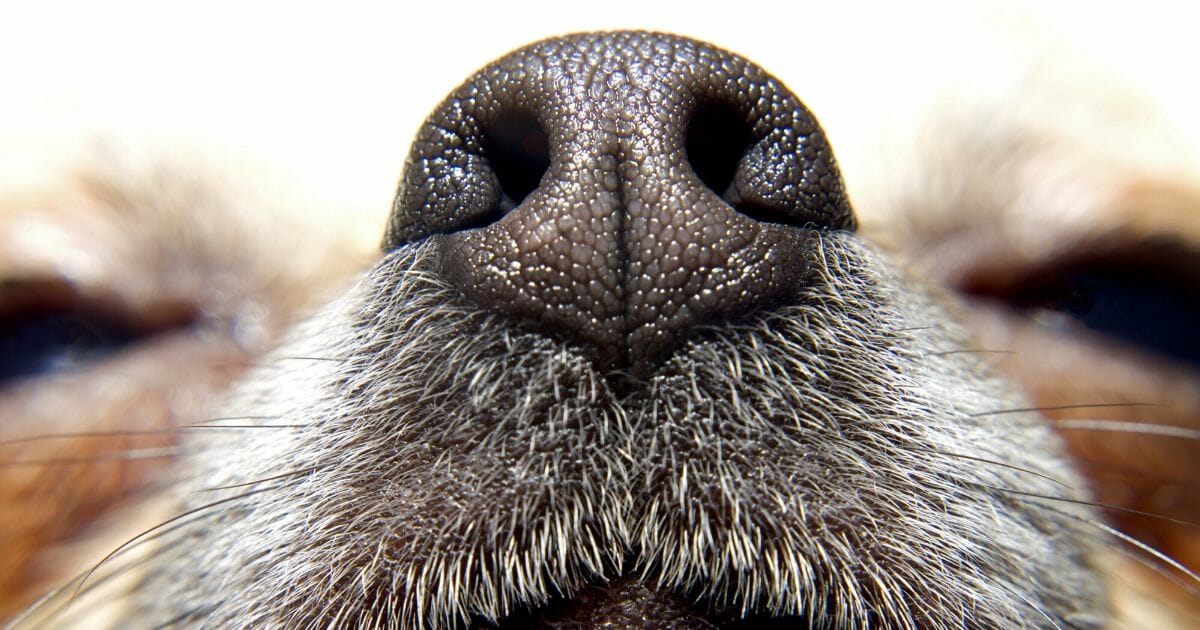
Dogs around the world are being put to work to help detect illnesses and chronic conditions like cancer, malaria, diabetes and more through their acute sense of smell.
Their noses are also used for search and rescue and cadaver work in traumatic scenarios such as natural disasters or criminal investigations.
Now those same noses could be used to save lives amid the current health pandemic. Doctors and researchers are working to see if dogs can also detect if a person has COVID-19, even if they are asymptomatic.
Teams from the United Kingdom’s London School of Hygiene and Tropical Medicine, Medical Detection Dogs and Durham University partnered to conduct the test.
In March, the team began training “bio detection dogs” to detect the disease and believe that the dogs will be ready to use in the field by early- to mid-May.
TRENDING: Pennsylvania Takes Hundreds of ‘Probable’ COVID Deaths Off Books After Coroners Come Forward
The dogs will go through the same training process that they would in order to detect any other type of illness.
During training, Medical Detection Dogs trainers will have an assortment of samples for the canines to sniff, some of which will contain the disease, and the dogs will be expected to alert their handler once the odor is identified.
Do you think dogs can help in the fight against COVID-19?
50% (1 Votes)
50% (1 Votes)
“This new diagnostic tool could revolutionize our response to COVID-19,” said Professor James Logan, Head of the Department of Disease Control at LSHTM and director of Arthropod Control Product Test Centre.
“It’s very early stages. We know diseases have odors — including respiratory diseases such as influenza — and that those odors are in fact quite distinct,” Logan said, according to the New York Post. “There is a very, very good chance that COVID-19 has a specific odor, and if it does I am really confident that the dogs would be able to learn that smell and detect it.”
Having the dogs detect the disease could create a less invasive and more efficient way for medical professionals to determine who may have COVID-19.
“The aim is that dogs will be able to screen anyone, including those who are asymptomatic and tell us whether they need to be tested. This would be fast, effective and non-invasive and make sure the limited NHS testing resources are only used where they are really needed,” said Dr. Claire Guest, CEO and Co-Founder of Medical Detection Dogs, according to LSHTM.
Researchers conducting the tests said that the specially trained dogs are expected to be able to screen up to 250 people an hour.
RELATED: Missing Age 4 Girl Found in Woods After Two Nights with Dog by Her Side
According to LSHTM and Durham University, if this type of screening is successful, it could help create a huge turn around in the fight against the highly contagious coronavirus and significantly slow the spread.
“If the research is successful, we could use COVID-19 detection dogs at airports at the end of the epidemic to rapidly identify people carrying the virus. This would help prevent the re-emergence of the disease after we have brought the present epidemic under control,” Durham University Professor Steve Lindsay said.
In an effort to keep their fight against COVID-19 going, the research team launched an Indiegogo campaign for donations. Medical Detection Dogs published the link on Twitter along with an introduction of the six dogs that will likely be trained to detect the illness.
“Norman, Digby, Storm, Jasper and Asher could be trained to detect if someone has #COVID19 and play a vital role in preventing further spread of the pandemic in the future.”
***CV-19 SUPER SIX***
Norman, Digby, Storm, Star, Jasper and Asher could be trained to detect if someone has #COVID19 and play a vital role in preventing further spread of the pandemic in future. @LSHTM@durham_unihttps://t.co/xuheY7OOz6 pic.twitter.com/vOdTuekdaW
— Medical Detection Dogs (@MedDetectDogs) April 18, 2020
So far the team has received over $10,000 in donations toward their effort to slow the spread of the disease with the assistance of man’s best friend.
We are committed to truth and accuracy in all of our journalism. Read our editorial standards.
via The Western Journal
Enjoy this article? Read the full version at the authors website: https://www.westernjournal.com
